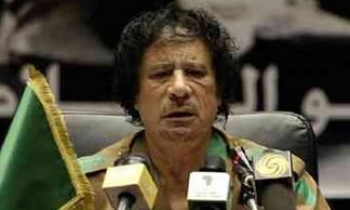When the World Economic Forum last met 12 months ago, the undoubted media stars of the event were Larry Page and Sergey Brin. Aside perhaps from Bono, nobody attracted such attention, adulation or worried fascination as the founders of Google.
This year, however, the disruptive technologists were playing a more reserved role, while the old media moguls whose power they were supposed to have sapped were exhibiting a new confidence.
The media mood swing was personified by the presence of Rupert Murdoch, the News Corp chairman who has seen little reason to come to Davos in previous years.
But Mr Page and Mr Brin were also cast in a different role, eager to persuade the media that Google was an attractive partner rather than a threat.
“We’re trying to make producing content as profitable as possible for the people who produce it,” Mr Page said, highlighting Google’s plans to extend its online advertising technology to radio and television and declaring that he saw “a good future” for newspapers, one of the industry’s most out-of-favour sub-sectors.
The reason for Mr Murdoch’s visit – to support Nicholas Negroponte’s “$100 laptop” project – also highlighted the industry’s newly proactive interest in new forms of media distribution and its growing belief that these present opportunities rather than threats.
According to Bob Wright, chairman of NBC Universal, two of the most important developments discussed in Davos were how the spread of broadband internet access and internet-enabled mobile phones were expanding media groups’ potential customer base globally.
“We are trying to understand how we can organise our content generation to fit those forms,” he told FT.com, adding that NBC was “trying to sort through” what partnerships it would need with portals such as Google. By placing “small bets” on new media initiatives and investing in emerging start-ups, he added, groups such as NBC had the chance to replicate the success of entrepreneurial new rivals. According to Bill Roedy, vice-chairman of MTV Networks, the industry is seeing “a proliferation of power” rather than a simple shift of power from companies to their audiences. “It’s a wonderful opportunity, I think ... TV’s not dead.”
Executives also highlighted how they have adopted the tools of their new media rivals to engage their audiences more deeply, with initiatives such as Virtual Laguna Beach, an interactive version of an MTV television show, or Reuters’ news bureau in Second Life, the virtual online universe.
Mr Roedy noted that, while many start-ups depended entirely on Google’s AdSense system for their advertising revenues, MTV and its peers retained direct ties with advertisers.
New online and mobile markets would put pressure on advertising pricing, Mr Wright admitted, but “the total dollars of advertising will increase”.
Bill Gates of Microsoft added that this would be accompanied by “an explosion of creativity” as advertisers worked out how to use the new media.
Neville Isdell, chairman and chief executive of Coca-Cola, cautioned that traditional media could still find themselves fighting over a shrinking piece of this pie, as companies such as his spent more on new outlets, outdoor advertising and in-store promotion.
He added, however, that Coca-Cola this year advertised during the Super Bowl for the first time in nine years because it still found mass media most effective for brand promotion. “You can’t be linear about it because [media groups] will think up a response.”









